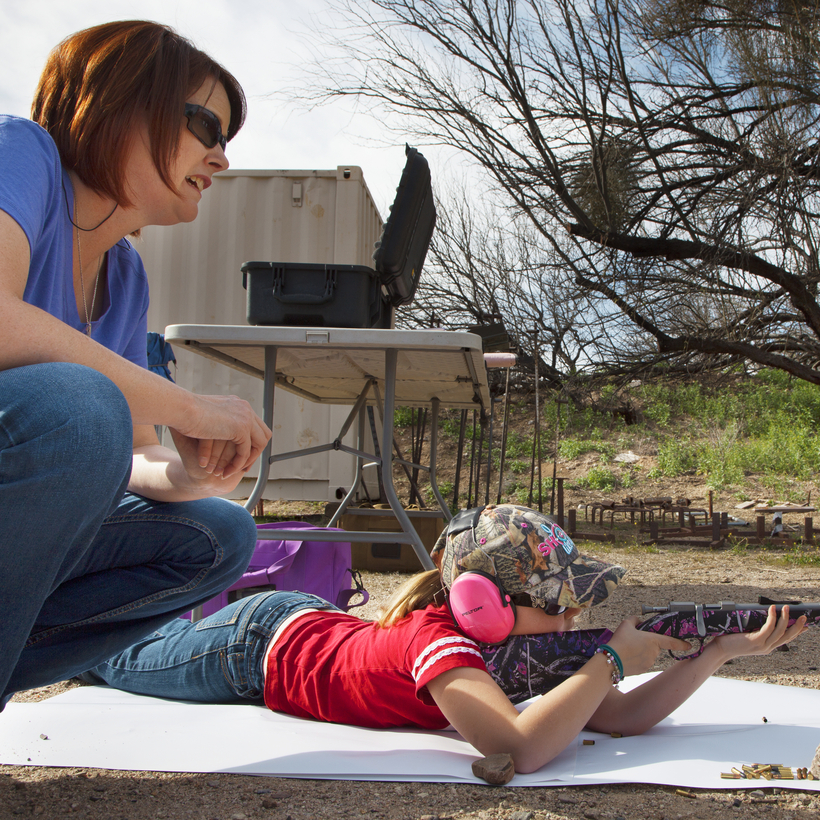On Instagram, @charissa_littlejohn posts a sweet montage of candid selfies with her firstborn son, Caidan. “These years go by so fast,” she writes in the caption. “Enjoy every second.” The next day, she takes to Instagram again, this time posting an airbrushed shot of herself holding a gun magazine. She captions it, “Anyone who follows me never shot a gun before? Do you want to learn?”
Littlejohn is a veteran, a mother, and a wife, who, with her husband, owns a gun-holster company in California. With more than 350,000 Instagram followers and a little blue check next to her name, Charissa is also a lifestyle influencer, and her lifestyle centers around two things: kids and guns. And she’s not alone.


